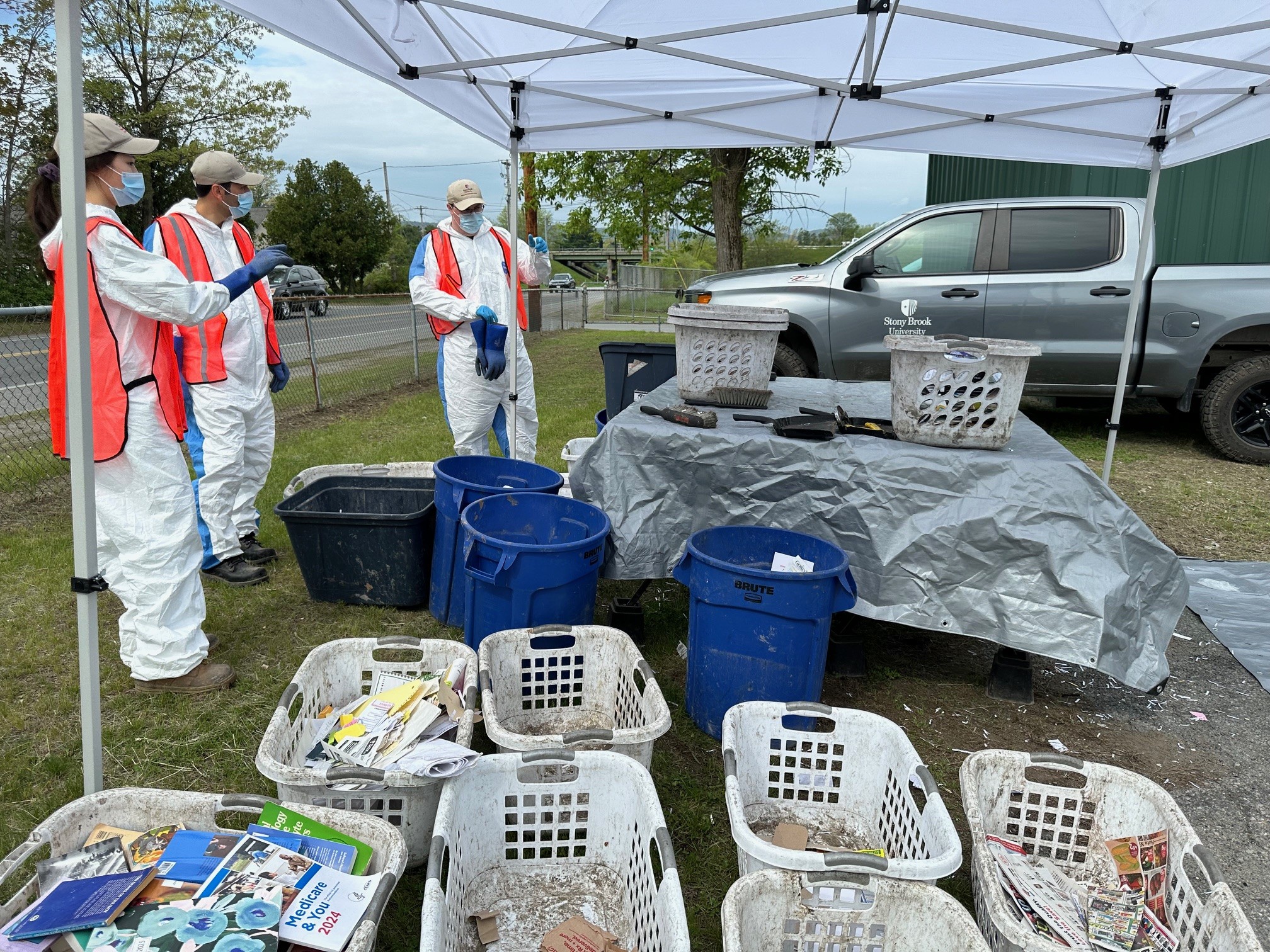
Every week, recyclable materials that are worth money and organic waste that can be turned into valuable compost are dumped at local transfer stations or picked up by trash haulers.
Warren County is trying to get a grasp of just how much of the local waste stream is material that doesn’t belong there, and staff from a NY State-funded program known as Waste Data & Analysis Center (WDAC) visited Warren County transfer stations May 13-15 to tear apart our trash.
It’s not pleasant work.
But the three-person team of young scientists from WDAC has learned to embrace it, traveling around NY State to examine the waste stream by opening garbage bags and emptying recycling bins. They spent May 13 at the Warrensburg Transfer Station, May 14 at Queensbury’s Luzerne Road Transfer Station and May 15 at Lake George’s Transfer Station.
The goal is to give Warren County Department of Public Works data as to the amount of organic waste that could be composted as the county works to create a composting facility, and to help streamline local recycling efforts. The study comes as Warren County began overseeing hauling of waste and recyclables from town transfer stations earlier this year.
“We are giving a snapshot of what local trash and recycling looks like, to see what’s in there and what could be diverted,” said Griffin Walker, one of the waste analysts. “This is information that can help save money and help the environment.”
There is no way to get that data other than to don hazard materials suits, gloves and masks and open bags and dump bins, separating and weighing materials and taking detailed notes. It makes for some interesting discoveries, but the trio -- based at SUNY Stony Brook -- have visited dozens of municipalities around New York over the past 5 years, so little surprises them.
“There’s nothing really too shocking anymore,” Walker said.
“Hunting seasons is interesting. We see a lot of deer parts,” Waste Data team member Hailey Lee noted with a laugh.
Walker said the data can give municipalities ideas as to what recyclables are winding up in the waste stream, and how much organic waste was available for diversion to a composting facility.
“With some of what we find, you are throwing away money, essentially,” he noted.
The team will compile a report that will be provided to Warren County DPW in a few weeks, according to Scott Royael, Warren County’s Solid Waste & Recycling Compliance Coordinator. Because waste and recycling can be complex, there is often confusion about what belongs in the trash versus what can be recycled. The results of this study will provide concrete data to guide our outreach and education efforts. Additionally, it will allow us to assign a dollar value to reusable, compostable, or recyclable materials that are currently ending up in the landfill. This data will help shape strategies to reduce waste and increase diversion from landfilling and incineration.
“We will be able to use the data to help figure out how to improve our collection systems, among other things,” Royael said.
